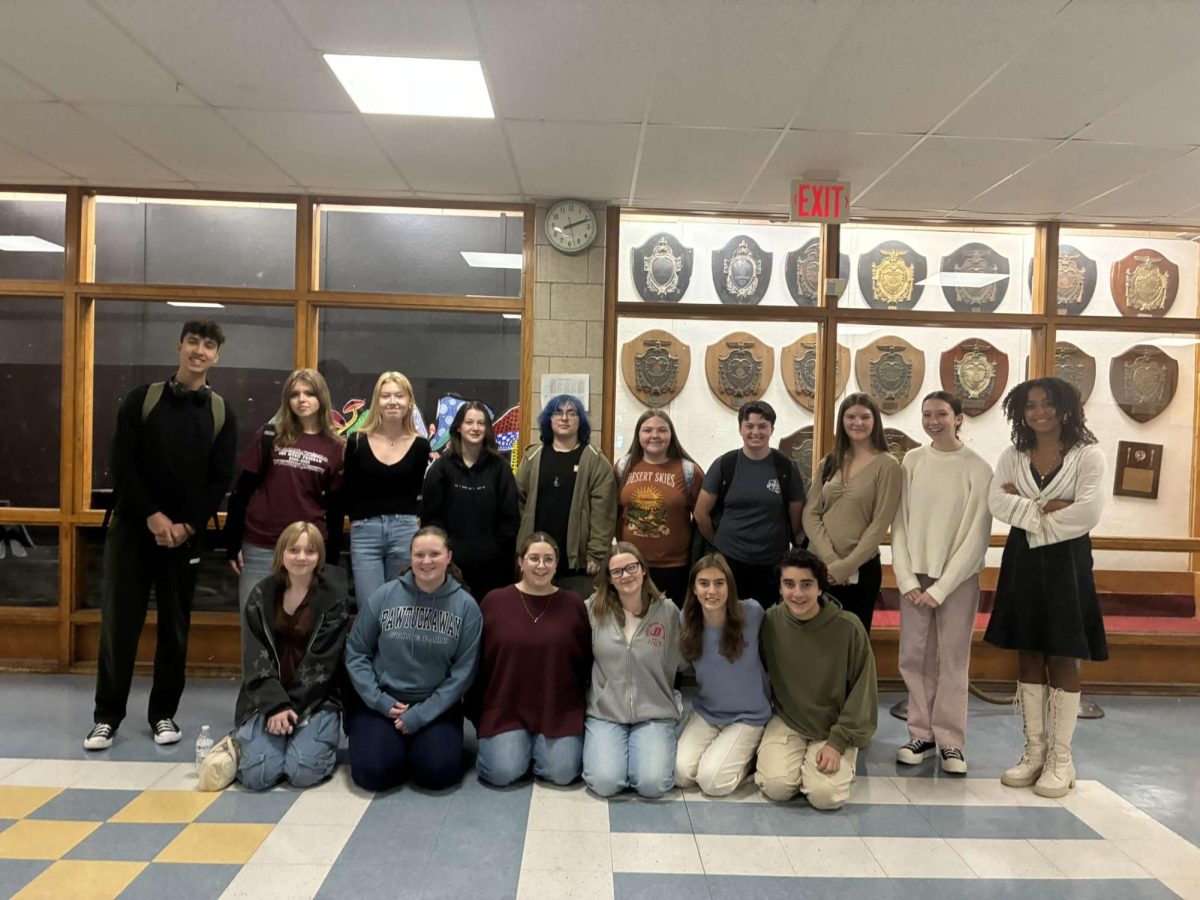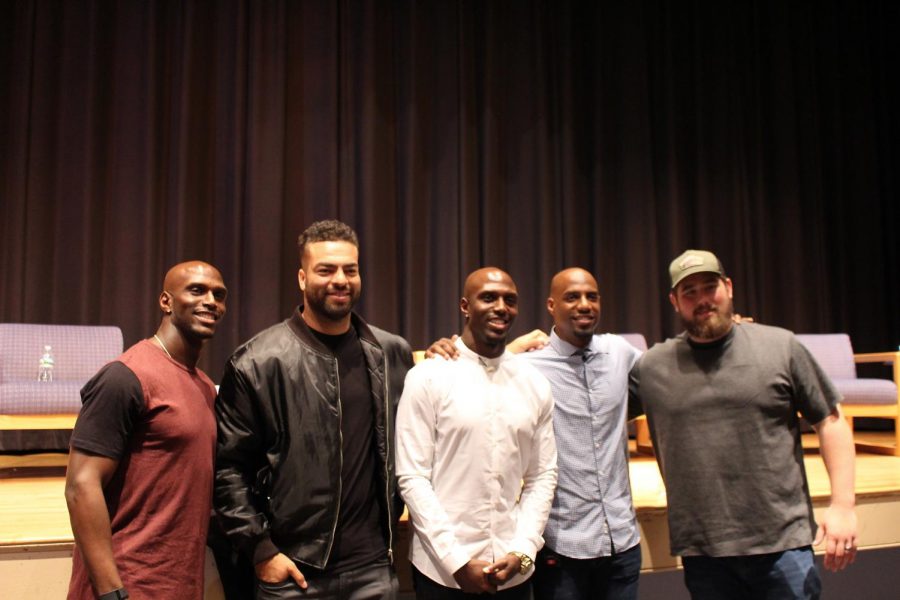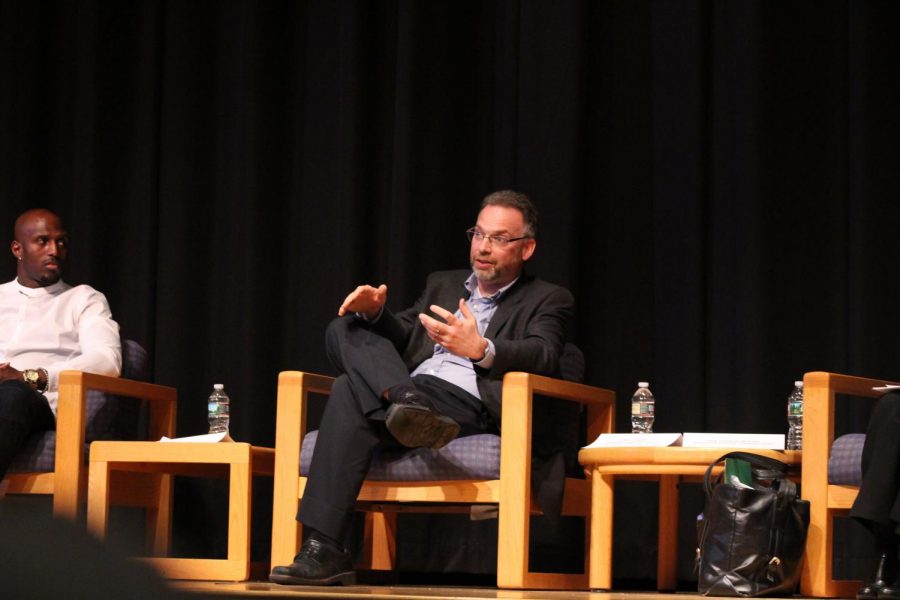Patriots players and law officers participate in juvenile justice panel discussion
Patriots players Jason McCourty, Kyle Van Noy, and David Andrews came to support Devin McCourty and Duron Harmon at the panel discussion
May 2, 2018
On Wednesday April 25, members of the Players Coalition hosted a panel on juvenile justice for high school journalists at Walpole High School.
Among attendees were New England Patriot players Duron Harmon and Devin McCourty who are members of the Players Coalition – a non-profit organization dedicated to fighting racial and social inequalities.
Players involved in the coalition are being educated on the inequalities that can occur in the judicial system. Some players have taken action by having conversations with district attorneys and court officials about bill reforms, the juvenile system, and Massachusetts incarceration.
“I remember when we were on the first Listen and Learn Tour, seeing these real issues and talking to experts,” said Patriots Safety Devin McCourty. “They talked to us about going to the lawmakers and policy makers to make them aware of all these issues in the community.”
Patriots Safety Duron Harmon witnessed his cousin go to jail for nine years because of a nonviolent crime, which led to him to joining the coalition and all that it stands for.
“This is something I have to be passionate about. Not everybody has the platform I have,” said Harmon. “I had to do something not only for my family but for the community.”
Harmon first joined the Players Coalition after attending a discussion panel at Harvard with teammate McCourty, who got involved with the Players Coalition because he wanted to help fight injustice.
“Just seeing all of those different [injustices] in our country and at the end of the day, it came out that [the accused] did nothing wrong,” stated McCourty. “I said ‘I’m tired of just sitting around and tweeting or going on Instagram, what’s something that’s more real? What’s something that we can actually do?’”
Athletes who are role models have a platform to speak up for issues like injustices in the juvenile court system.
“Because we play sports and are more well known, people want to listen to what we have to say so it is important for athletes to be involved,” McCourty. “We just try to make as much spotlight [on the situation] as possible.”
Injustices in the Criminal Justice System
64 percent of out of school suspensions are for nonviolent and noncriminal behaviors. Racial prejudice also plays a part in who is being suspended, as well.
African American students are four times more likely than white students to get suspended, while students with disabilities are two times more likely.
“When you are confronted with the numbers, the numbers speak well for themselves,
” said Honorable Judge Gloria Tan from Middlesex Juvenile Court.
The panel elaborated on the fact that students who get suspended are more likely to get involved with the law.
Governor Charlie Baker signed a reform bill on April 13, which addresses problems within the Criminal Justice System and will help prevent students from getting involved in criminal activity.
“[The bill is] not only to cut down rates but to strengthen our schools,” said Matt Cregor, Education Project Director of the Lawyers’ Committee for Civil Rights and Economic Justice.
Criminal Justice Reform Bill
One point of the Reform Bill is to raise the age of when a child can be criminally charged from age seven to twelve.
“Young people seven years old can go to jail and it’s nuts,” said Patriots owner Robert Kraft. “We have to correct that and make sure all people are treated the same in the judicial system.”
The bill will prevent children from entering the Criminal Justice System at such a young age and instead give the option for children to learn from their mistakes in a simpler way.
“You have to ask yourself, ‘Do they even understand what is going on?’,” said Tan.
Children at six and seven years old misbehave and some teachers claim that they are scared of these young students. Instead of addressing the issue in a school setting, they immediately get the police involved unnecessarily.
“Some students are just wanting love and affection,” said Harmon. “The bill will force teachers to deal with [misbehaviors] the right way.”
Another highlight of the bill is to allow minors to participate in diversion programs instead of doing jail time. Community service is one of the options diversion programs will offer so the offender will not receive a criminal record.
“There’s underlying issues that I think should be dealt with without creating a criminal record,” said Tan.
In addition to the diversion programs, the bill will provide the opportunity for juveniles to have their criminal records expunged. This will allow juveniles to still be able to join the military or get a job without conflict.
Next Steps
Panel members stressed the importance of hiring teachers who are capable and qualified to handle students with IEPS and disabilities.
“It’s so easy for teachers to judge just by what they see, not by what’s really going on,” said Harmon, whose mother became a special education teacher. “We should be finding different types of programs to better [students with disabilities], not just suspend them.”
The coalition looks to shed light on the many procedures and rights that parents and students are still unaware of.
“I would love to see more community education,” said Tan.
An action you can take to support making changes revolving around the Criminal Justice System is to start conversations.
“Just talk about it, whether it is with parents or discussions in schools,” said McCourty. “Don’t take for granted those smaller conversations with people.”
Establishing a child trauma task force and collecting data are also on the agenda of the Players Coalition’s next steps.
“The more you grow, the more lives you touch and the more people there are to learn from and g
row with,” said Harmon. “We are going to continue to fight for change.”
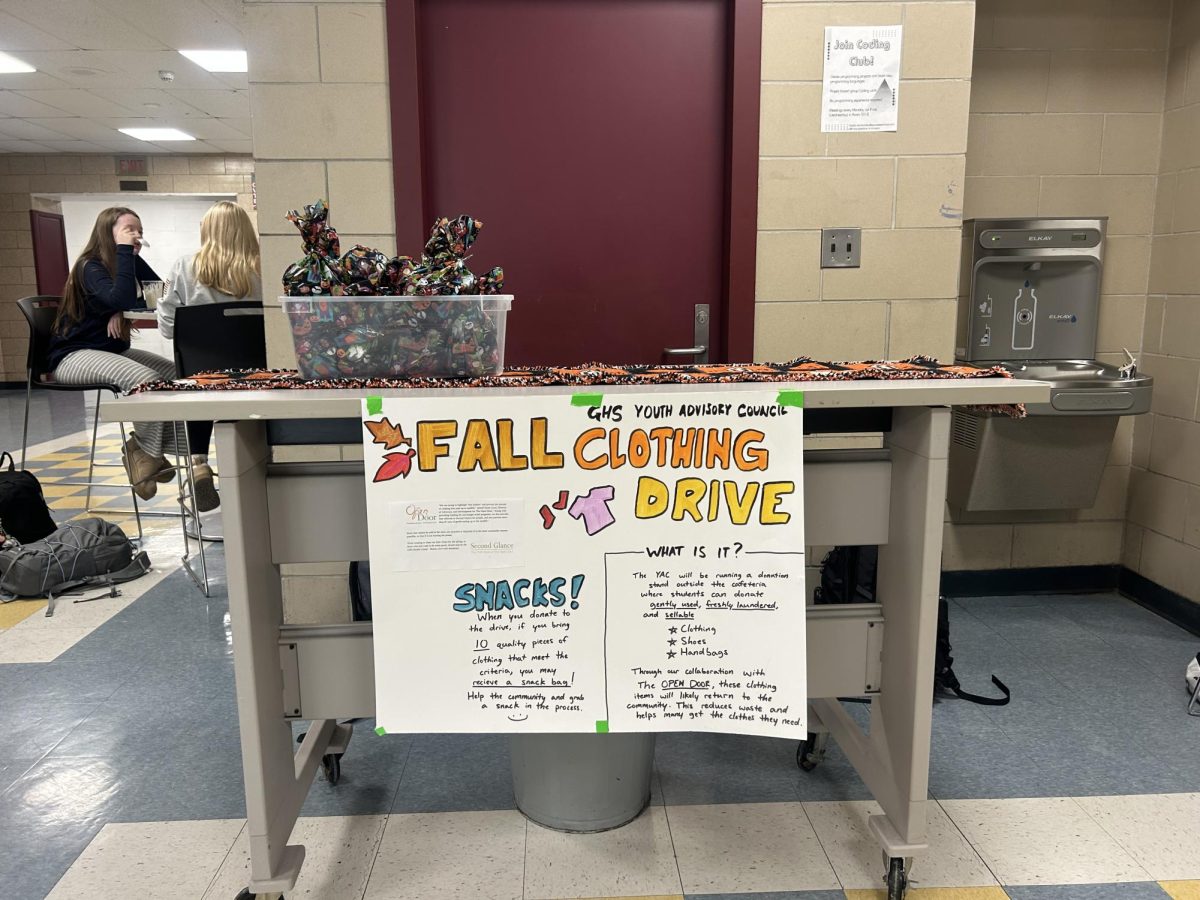
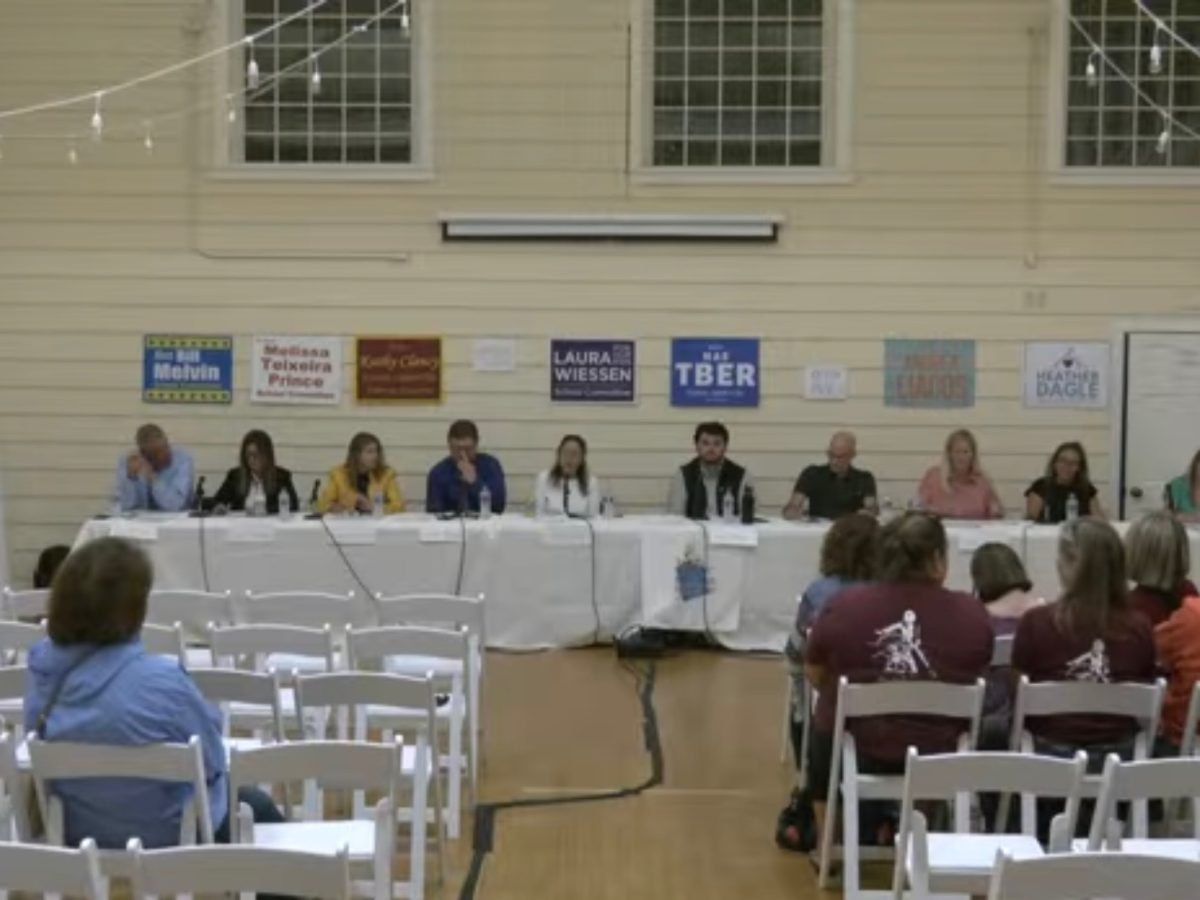


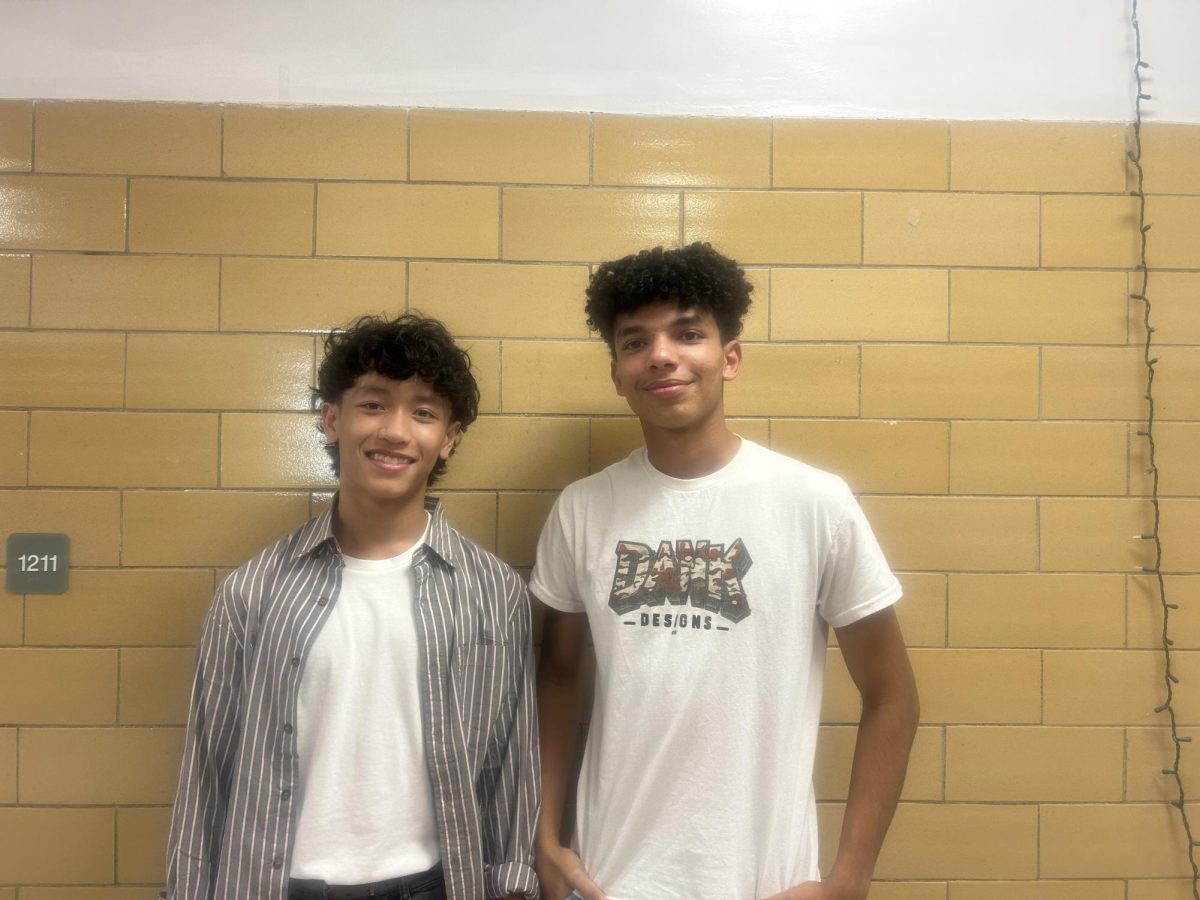





![The Volleyball team poses after their win. [Photo courtesy of GHS Volleyball]](https://thegillnetter.com/wp-content/uploads/2025/10/IMG_6936.jpg)
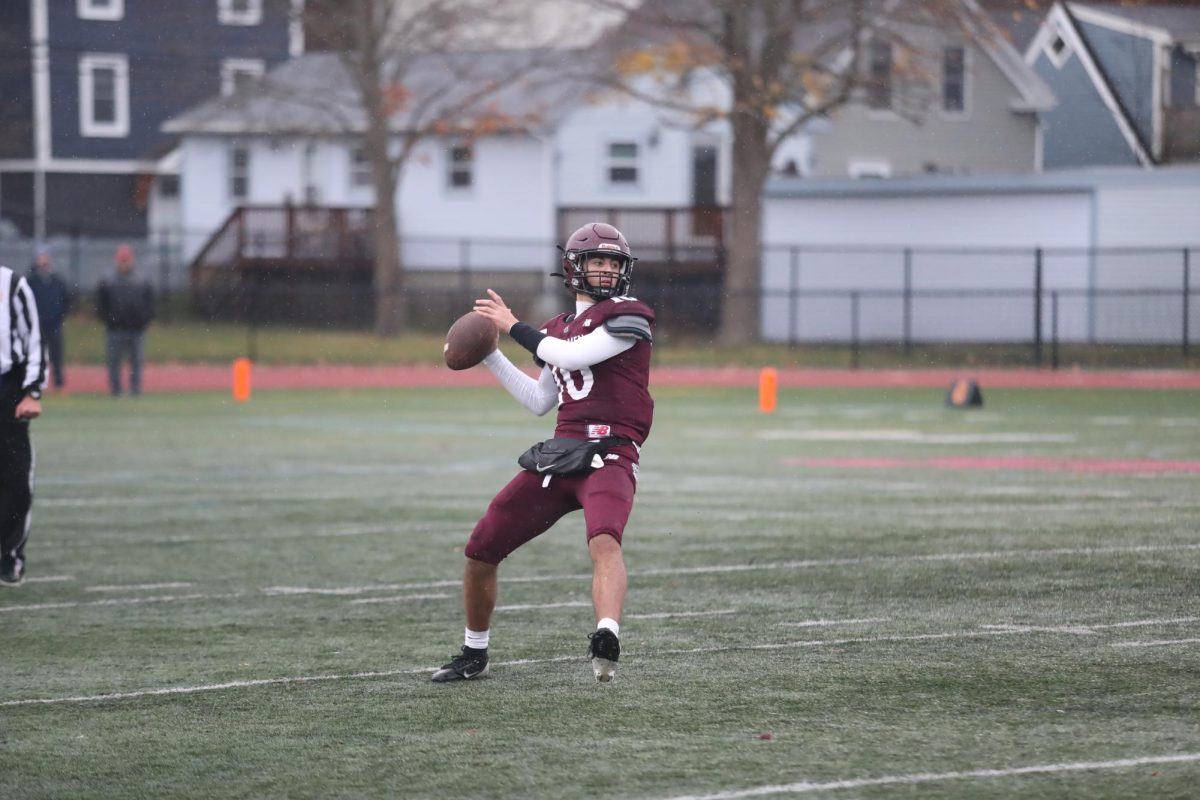


![The GHS/MERHS senior cross country runners pose together on Senior Night. [Photo courtesy of Manchester-Essex Athletics]](https://thegillnetter.com/wp-content/uploads/2025/10/Screenshot-2025-10-10-at-11.18.29-AM.png)





